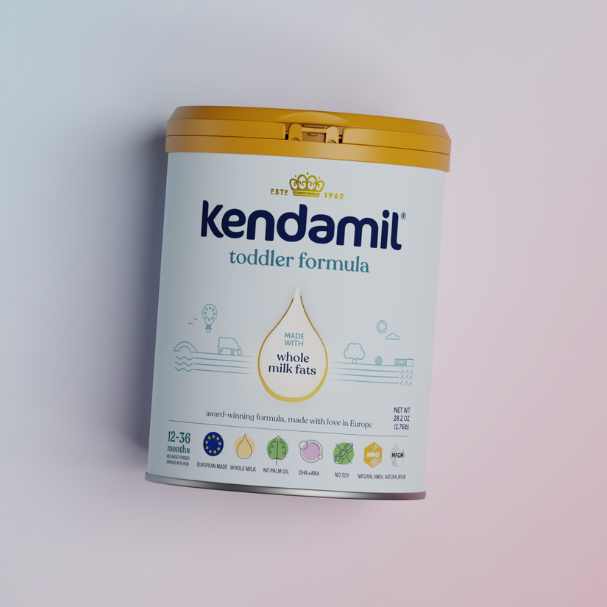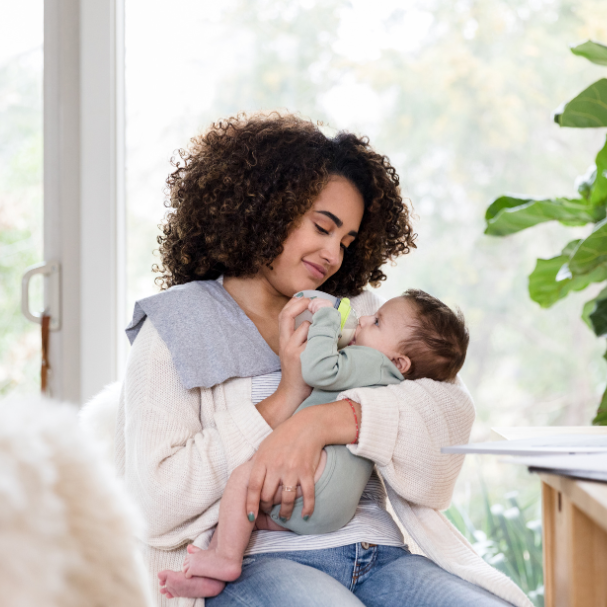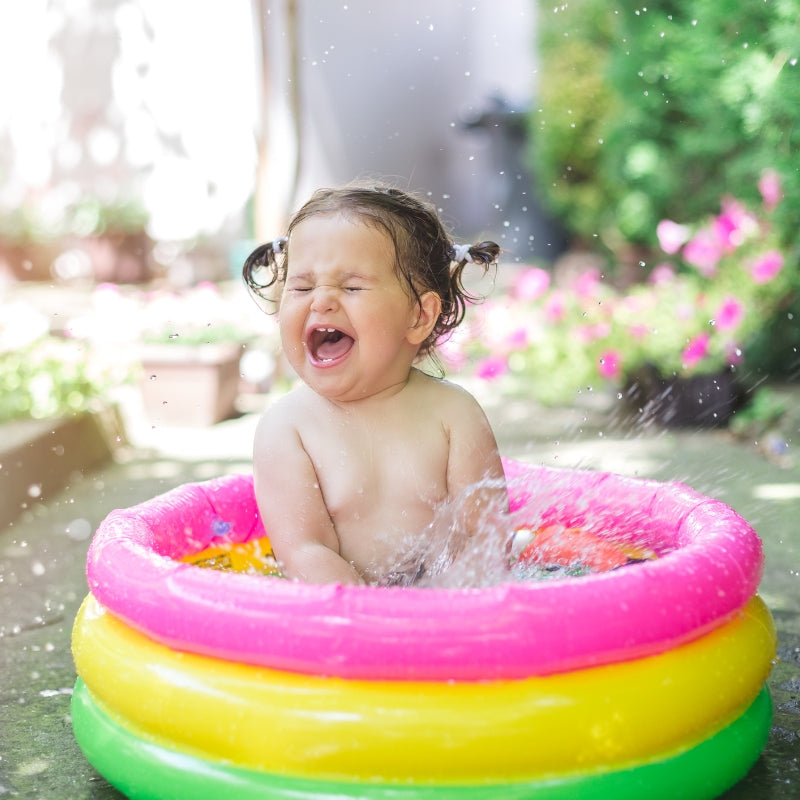As a new parent, one of the things you may be most concerned about is your baby's poop. It can be confusing trying to understand what is normal and what isn't, and when you should be worried. We're here to help, by answering the 10 most asked questions about baby poop.
How often should a baby poop?
When it comes to frequency, every baby is different. Some babies may poop several times a day, while others may only poop once every few days. Here are some general guidelines on how often a baby should poop at different ages.
- Newborns (0-6 weeks):
Newborns may poop several times a day or as infrequently as once a week. Breastfed babies may poop after every feed, and formula-fed babies may poop once or twice a day. It is important to note that the frequency of bowel movements may vary depending on the baby's diet and how they are being fed.
- Infants (6 weeks to 6 months):
During this age, infants may have bowel movements that range from several times a day to once every few days. Breastfed babies may continue to have frequent bowel movements, while formula-fed babies may have less frequent bowel movements.
- Toddlers (6 months to 3 years):
As babies get older, their bowel movements may become more regular, with most toddlers having a bowel movement once or twice a day. However, some children may have bowel movements less frequently, and this is considered normal as long as the child is comfortable and healthy.
What does normal baby poop look like?


The appearance of baby poop can vary depending on whether your baby is breastfed or formula-fed. Breastfed babies will typically have soft, yellow, and sometimes seedy poop. Formula-fed babies will have firmer, more formed poop that is usually mustard or greenish colored. It's important to note that the color of your baby's poop can change depending on their diet, so don't be concerned if it's not always the same color. A lot of parents will notice differences as they introduce weaning, or change milks.
If you notice that your baby's poop is green, it could be due to their diet. If they are being breastfed, it could be because your milk supply is increasing, which can cause the poop to appear greener. If they are formula-fed, the green color could be due to the fats in the formula. It's important to note that green poop is not always a cause for concern and is not a symptom of an illness. A lot of parents using Kendamil do note a yellow or greenish tinge to their baby’s poop!
A looser stool is common and can be totally normal. However, if your baby's poo is unusually runny and watery, it could be a sign of diarrhea. Other symptoms of diarrhea in babies include frequent bowel movements, stomach cramps, and a fever. If you suspect your baby has diarrhea, it's important to speak to your GP or health visitor, as they may need to be treated with oral rehydration solutions.
Constipation in babies can be difficult to recognize, as they may not have regular bowel movements like adults do. Signs of constipation in babies include hard poop, straining during bowel movements, and crying or discomfort during or after passing a bowel movement. If you suspect your baby is constipated, speak to your doctor or health visitor. They may recommend increasing your baby's fluid intake, or changing their diet to include more fruits and vegetables.
Should I be concerned about blood in my baby's poop?
If you notice any blood in your baby's poop, it's important to speak to your doctor or health visitor as soon as possible. Blood in the poop can be a sign of a number of things, including infection, a milk allergy, or a condition such as Inflammatory Bowel Disease (IBD). It's important to note that a small amount of blood in the poop can also be caused by small tears in the anus, which is known as anal fissures.
Can certain foods affect my baby's poop?
Certain foods can affect your baby's poop, particularly if they have a food allergy or intolerance. If your baby is breastfed and you eat certain foods, it can cause your baby to have diarrhea, a rash, or colic. Common food allergens in babies include cow's milk, eggs, peanuts, tree nuts, fish, and shellfish. If you suspect your baby has a food allergy or intolerance, it's important to speak to your doctor or health visitor, who may recommend switching to a special formula or removing certain foods from your diet.
How do I know if my baby has an allergy or intolerance?
Symptoms of a food allergy or intolerance in babies can include diarrhea, a rash, colic, or eczema. If your baby has a milk allergy or lactose intolerance, they may also have symptoms such as vomiting, reflux, or bloating. If you suspect your baby has a food allergy or intolerance, it's important to speak to your doctor or health visitor, who can refer you to a specialist for further testing.
Can teething affect my baby's poop?
Teething can cause discomfort and changes in your baby's behavior, but it is not known to directly affect their poop. However, if your baby is experiencing discomfort from teething, they may be less likely to eat and drink as much as usual, which can affect their bowel movements. Also, when dribbling a lot and swallowing a lot of saliva, you may notice more mucus in your little one's poop.
What should I do if my baby's poop smells bad?
Baby poop is never going to smell delightful, but if you notice a big shift in smell, it could be sign of infection. If you're concerned about the smell of your baby's poop, it's always best to speak to your doctor or health visitor.
In conclusion, understanding your baby's poop can be a tricky task for new parents, but it is important to remember that every baby is different. As long as your baby is gaining weight and seems comfortable, there is no need to worry about the frequency, appearance or consistency of their poop too much. However, if you notice any worrying symptoms such as blood in the poop, diarrhea, constipation or bad smell, it's always best to speak to your doctor or health visitor. They will be able to give you the best advice and help you put your mind at ease.














